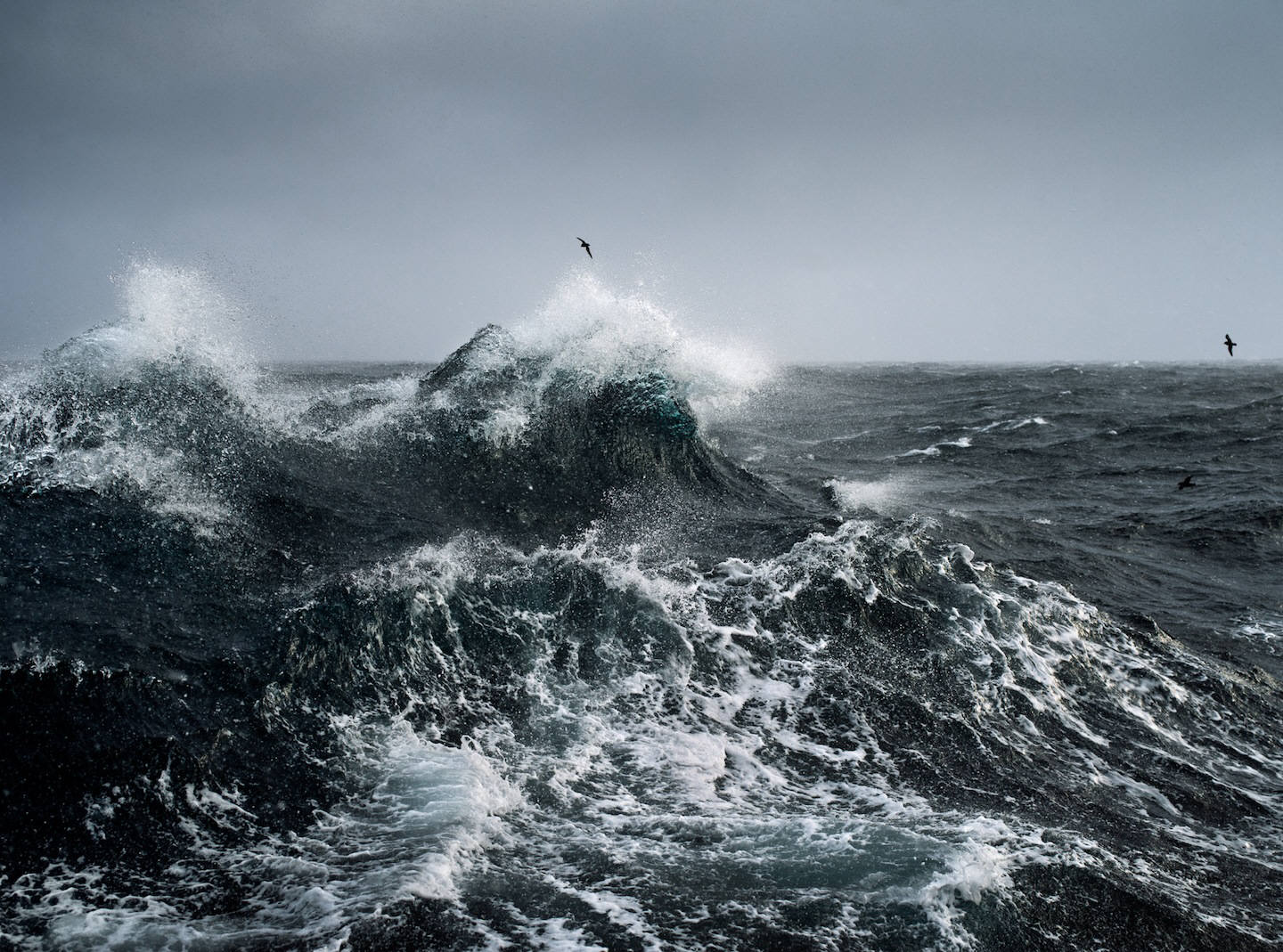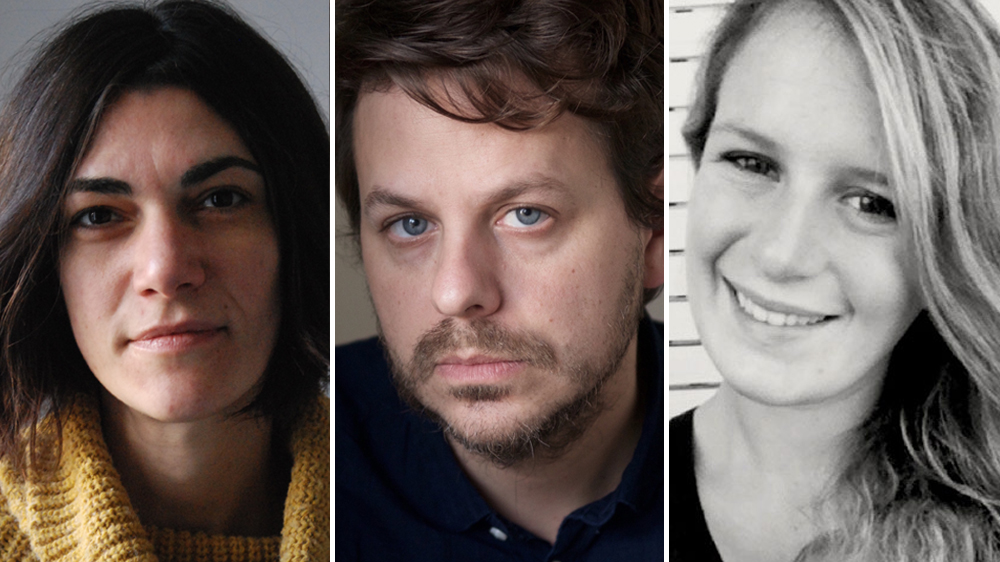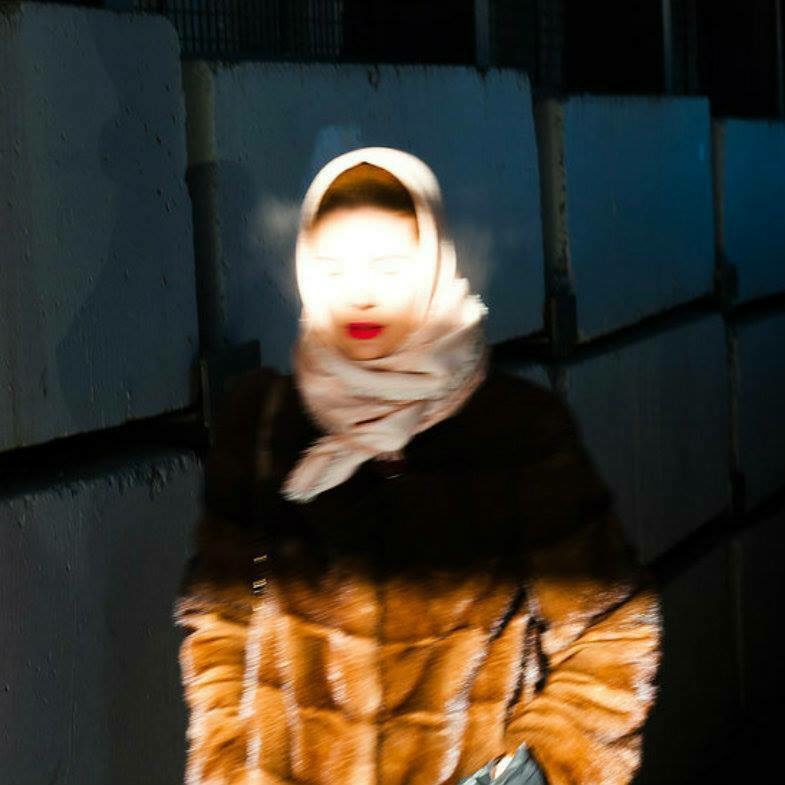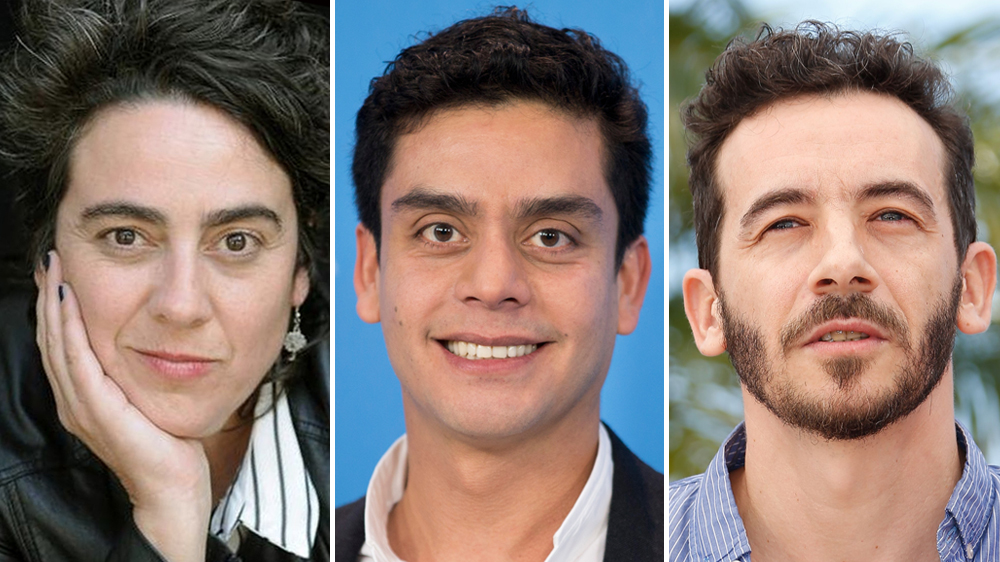San Sebastian: Pablo Fendrik, Jayro Bustamante, Pepa San Martín, Emiliano Torres Set for Co-production Forum
By John Hopewell
LOS ANGELES (Variety.com) – MADRID — Four burgeoning Latin American auteurs – Argentina’s Pablo Fendrik and Emiliano Torres, Guatemala’s Jayro Bustamante and Chile’s Pepa San Martín – will present new movie projects at San Sebastian’s 7th Europe-Latin America Co-production Forum, the biggest industry event at the most important festival in Spain and Latin America.
Project screenplays still have to be read. Lent edge, however, by the presence of titles from nine women, including two of Catalonia’s most exciting young female cineasts, Meritxell Colell and Clara Roquet, the Forum competition will also welcome some of the producer movers and shakers on Ibero-America’s arthouse scene: Brazil’s Dezenove, Argentina’s Rei Cine and Varsovia Films, Spain’s Avalon and Lastor Media.
Add to that mix two players on three ever more ambitious film hubs – the Basque Country’s Gariza Films, Switzerland’s Matthias Huser and Moroco Alfredo Colman at Argentina second-city Cordoba – and the line-up of projects at this year’s Forum looks on paper at least like, arguably, the strongest since the event launched in 2012.
“In its seven years, the Forum has become a fully consolidated industry activity, not only due to the rise in the number of submissions, but also to the profile of the participating filmmakers and producers,” said San Sebastian Festival director José Luis Rebordinos.
In Cannes-selected Amazon Western “El Ardor” and even in HBO Latin America’s “The Bronze Garden,” where, with Hernán Goldfrid, he delivered some of the finest direction on any Latin American TV series last year, Fendrik has explored the lawlessness and base human instincts of benighted corners of Latin America. “Hermano Peligro” returns to the territory in a potentially propulsive Patagonia-set revenge-survival thriller. “The weak presence of the state and institutions leave the film’s characters without greater authority than physical supremacy, without more values than blood,” commented producers Benjamin Domenech, Santiago Gallelli, and Matías Roveda at Buenos Aires-based Rei Cine, behind Lucrecia Martel’s “Zama” and now Gonzalo Tobal’s 2018 Venice Competition player, “Acusada.”
Bustamante’s follow-up to his Berlin Silver Bear-winning debut “Ixcanul,” “La Llorona” (The Weeping Woman) stars “Ixcanul” leads Maria Mercedes Caroy and María Telón in a movie taking as a backdrop the mass killings of Maya civilians during the Guatemalan Civil War (1960-1996), Bustamante told Variety at the IFF Panama.
A market hit at San Sebastian’s 2015 Films in Progress, where Latino Films swooped on international rights, and winner of Berlin Generation KPlus’s Grand Prix and San Sebastian’s Horizontes Latinos in 2016, coming of age tale “Rara” announced a director able to explore themes of female love, family and friendship in a movie of sizable international sales appeal. Produced again by Macarena López at Chile’s Manufactura de Películas, “La Felicidad” (Happiness) turns on the relationship of Ana, a 65-year-old woman, and friend Teresa, reflecting on “solitude and friendship – and on how we try to build our happiness, however fragile it is, and how we search for it all the time,” San Martín told Screen last year.
“Marea” (Tide) marks Argentine Emiliano Torres’ follow-up to “El Invierno,” a Film in Progress 29 winner and subsequently Special Jury Award and best photography at the 2016 San Sebastián Festival, first prizes in a triumphant festival career. Produced by Argentina’s Gaman Cine, “Tide” is a more ambitious project than “Invierno,” Torres said. Designed as a co-production with Spain, its story follows a sick Spanish sailor and Argentine captain on board a fishing boat in the South Atlantic.
In all, nine of the Co-production Forum’s 16 competing projects are set to be directed by women, the first time in memory any San Sebastian section has had a majority women presence, and its major industry section at that. That bodes well for more parity in Latin American and Spain, not just because its industries are pushing for it, but also because of an exciting sense of generation renewal, in young women directors in Catalonia, Mexico and Chile, for instance.
Colell forms part of a young generation of Catalan directors whose debuts are galvanizing its moviemaking sector: Think Carla Simón, Nely Reguera, Celia Rico (in San Sebastian’s New Directors), Clara Roquet (also at the Forum), Pilar Palomero, Alice Waddington, Belen Funes and Lucia Alemany.
A Latin America-set road-movie produced by Barcelona’s Polar Star Films, “Duo” marks writer-director Meritxell Colell Aparicio’s return, teaming with the same co-producers – Argentina’s Pensilvania, France’s Paraiso – and lead actress (Mónica García) as her acclaimed docu-fiction “Facing the Wind,” a 2018 Berlin Forum entry, that won a Silver Biznaga at the Malaga Film Festival. Chile’s Manufactura de Películas is also on board.
Taken to a Mediterranean Sundance Lab by Roquet, a co-scribe on SXSW best actors winner “10,000Km” and “Petra,” admired at this year’s Directors’ Fortnight, “Libertad,” is her awaited helming feature debut, turning on a girl forced to come of age by her maid’s wild teen daughter. Madrid-based Avalon, behind Carla Simon’s “Summer 1993” and Nely Reguera’s “Maria (And the Others)”), two other debuts from a notable young Catalan woman filmmakers. produces with Lastor Media (“Anchor and Hope,” “10,000 Km”).
Defined by first timer Paula Un Mi Kim as a film about existential crisis, “Diário de Viagem” is produced by Sara Silveira at Sao Paulo’s Dezenove Som e Imagens, a famed supporter of new talent, teaming with Sam Ka Pur Filmes. Pandora Films will distribute the film in Brazil. The film’s star is Valentina Schulz, a teen actress and influencer, and former Masterchef Junior contestant. “Diário de Viagem” has 70% of the financing secured, looking at San Sebastián to tie.down U.K. co-production and world sales.
Produced by Varsovia Films, the Buenos Aires-based outfit run by Diego Dubcovsky (“The Motorcycle Diaries,” “The Broken Embraces,” “Truman”), “Las mil y una” (One Thousand and One) chronicles the day-to-day experience of two young women in the backwoods of Corrientes, a city in northern Argentine, bordering with Paraguay. Director Clarisa Navas (“Hoy partido a las 3”) is working with Corrientes-born non-pro actors, also backed by Argentine production houses BD Cine and Alta Definición Argentina.
“Democracy” marks the latest movie from Brazil’s Tata Amaral who broke through with 1996’s “Starry Sky,” and whose movies have often shown a social edge, whether the Fernando Meirelles-produced “Antonia, about four sassy female hip-hop artists, or 2016’s “Bring It Inside,” harking back to torture under the military dictatorship.
Set up at Bizkaia-based outfit Gariza Films, comedic romantic road-movie “Ane and Peio” follows 30-year Ane, a journalist who aims to become a traveler writer, but her reality is more banal. She decides to change this and start looking for her first love.
Project, co-produced with France’s La Fidéle Production, marks the second directorial outing by Lara Izagirre Garizurieta, who caught attention with her debut, “An Autumn Without Berlin,” a Basque homecoming drama. Gariza’s credits include Urkijo Alijo’s standout Spanish genre film, “Errementari – The Blacksmith and the Devil” and “Berlin.”
Part of the New Argentine Cinema, versatile director Albertina Carri (“Los rubios,” “Geminis”) presents at the Forum “Los extraños de la montaña helada” (The Strangers of The Cold Mountain), a El Borde production which addresses the traumatic step to adulthood of a deformed young man who lives on a mountain, with his sick, alcoholic and despotic mother.
Colman competed at San Sebastian’s 2016 New Directors with the formally inventive fractured family drama “Weekend.” He returns with “The Longest Night,” a fiction portrait of the true life Marcelo Sajen who raped north of 200 women in Cordoba over 1985-2004, exposing, with the film most likely following suite, “police, judicial and political negligence,” Colman said. Sofía Castells once more produces.
Produced by Catalina Vergara at Chile’s Globo Rojo Producciones, “Querida Vera” follows Alicia, an alcoholic Chilean actress who finds an unfinished film from 1973, starring by a mythical and mysterious actress called Vera Ratto. Both are characters with dark and unresolved pasts. Director José Luis Torres Leiva, who debuted with 2008’s “The Sky, the Earth and the Rain,” says the film talks about second opportunities in life but also addresses loneliness, the need for communication, affection and feelings beyond expression.
Swiss Matthias Huber, whose 2014 Kaurismaki-ish debut, “They Chased Me Through Arizona,” drew fans at Locarno, returns with “The Jungle” about a dying father fighting for his land in the jungle, a symbol of natural chaos, Huser has said. Also behind San Sebastian main Competition and now Toronto Platform-selected “The Innocent,” from Simon Jaquemet, Switzerland’s 8Horses produces.
Rome-based helmer Stefano Pasetto, known for “Turtles on Their Backs” and “The Call,” presents at San Sebastian “El velo” (The Veil), a project set up at Brussels-based Eklektik Productions (Joachim Lafosse’s “Ça Rend Heureux,” docu-series “Kongo”), and structured as a co-production with Italy and Argentina.
A Colombia-Mexico co-production put forward by Ibermedia, and to be presented out of competition, Bogota-based Lony Welter’s “La Lluvia” (The Rain), the recipient of a Tribeca Latin American Fund grant, is set in a placid Colombian hamlet, suddenly threatened by the arrival of foreign mercenaries on the trail of a treasure trove.
Selected from 223 submissions, 34% up on 2017, the Forum’s 17 projects will be pitched, along with titles in development at the Ikusmira Berriak residencies program, on Sunday Sept. 23.
Projects’ majority producer opts for four cash prizes: the Best Project Prize, worth €10,000 ($11,600); the Efad-Caci Award, carrying a €20,000 ($23,200) cash endowment, given by the European and Latin American associations of state film agencies; a €20,000 Eurimages Development Prize for a Forum-presented European co-production; a €6,000 ($7,000) Arte Intl. Prize. In a collaboration between San Sebastian, Cannes Film Market and Argentina’s Incaa film institute, select projects are invited to participate at Ventana Sur’s Cannes’ Producers Network this mid-December.
The 7th San Sebastian Europe-Latin America Co-production Forum runs Sept. 23-26.
SAN SEBASTIAN 7TH EUROPE-LATIN AMERICA CO-PRODUCTION FORUM
“Ane & Peio, a Paprika Love Story,” (Lara Izagirre, Spain, France)
“Butterfly Diaries,” (Paula Un Mi Kim, Brazil)
“Democracy,” (Tata Amaral, Brazil)
“Duo,” (Meritxell Colell, Spain, Argentina, France, Chile)
“Happiness,” (Pepa San Martín, Chile)
“Hermano Peligro,” (Pablo Fendrik, Argentina)
“The Jungle,” (Matthias Huser, Switzerland)
“Libertad,” (Clara Roquet, Spain, Denmark)
“The Longest Night,” (Moroco Alfredo Colman, Argentina)
“A New Dawn,” (Priscila Padilla, Colombia)
“One Thousand and One,” (Clarisa Navas, Argentina)
“Querida Vera,” (José Luis Torres Leiva, Chile)
“The Strangers of the Cold Mountain,” (Albertina Carri, Argentina)
“Tide,” (Emiliano Torres, Argentina)
“The Veil,” (Stefano Pasetto, Belgium, Argentina, Italy)
“The Weeping Woman,” (Jayro Bustamante, Guatemala)
IBERMEDIA PROJECT
“The Rain,” (Lony Welter, Colombia, Mexico)
Pictured, top to bottom, left to right: Pepa San Marín, Jayro Bustamante, Pablo Fendrik; “Marea”; Meritxell Colell, Emiliano Torres, Clara Roquet; “Happiness”.




